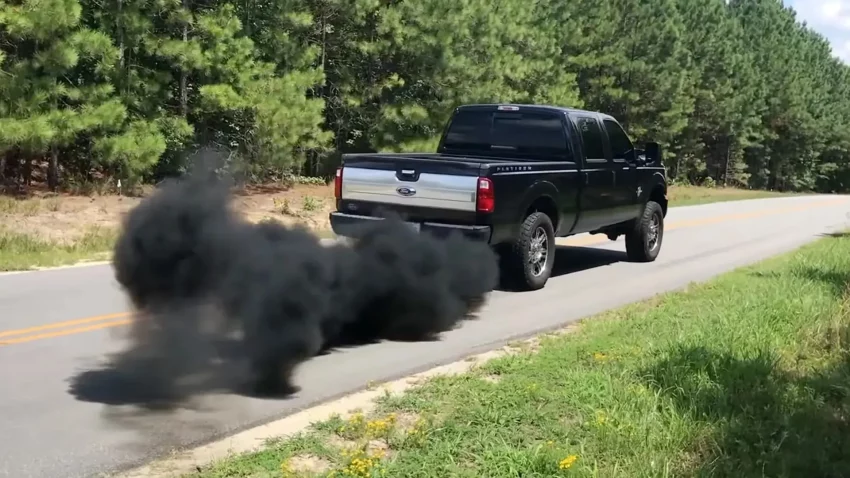The California Air Resources Board (Carb), the state’s air quality regulator, recently passed new and tougher rules on diesel emissions limits. The stricter laws are particularly intended for locomotive engines and are expected to affect the country’s high-polluting railways.
Under the new laws, locomotive engines that are over 23 years by the year 2030 will be phased out and idling times for diesel-powered engines that are longer than 30 minutes will be prohibited. Additionally, manufacturers will also be required to use zero-emissions technology.
Before the voting commenced, various supporters, including community members and environmental campaigners shared examples of the importance of tougher diesel emissions laws. They emphasised the struggles of frontline communities that have had to witness and find ways to deal with increased cases of cancer, asthma, and other life-changing health impacts of locomotive engine emissions.
Stories from residents were also shared: premature deaths of family members due to respiratory diseases, a kindergartener forced to abandon her love for running because of toxic air, and the sharing of inhalers (by children).
Regulators revealed that around 70% of the cancer risks among Californians are caused by toxic air that comes from diesel emissions. Locomotive engine emissions account for over 640 tons of small particle pollutants released annually. These pollutants can easily get into someone’s lungs. For a person with asthma, this can aggravate symptoms. Emissions from locomotives also release at least 30,000 tons of nitrogen oxides (NOx), which are responsible for the formation of smog and acid rain.
Analysts from Carb expect a reduction of around 90% in cancer risks within the affected communities a few decades after the rules are implemented. Greenhouse gas from locomotives may also drastically decrease after the 2030 ban on heavy-duty trucks takes effect.
Environmental non-profit lawyer Yasmine Agelidis described the move as ground-breaking and is positive that it will help address the decades-long problem of high diesel emissions in rail yards and railway communities.
While there are advocates who hoped that more can be done, others are appreciative because authorities have taken the first step towards tougher regulations on locomotive emissions.
The new set of rules can only move forward after the state secures authorization from the US EPA (Environmental Protection Agency). Initial feedback has been positive.
Rail industry representatives were also present during the voting and appealed to the board to push back the proposal. They argued against the accelerated timeline and the unclear direction of the zero-emissions locomotives plan. They set their zero-emissions goal for 2050.
The Association of American Railroads also voiced their objection against the swift transition and emphasised the interconnected and complicated structure of railroad operations.
Diesel trucks phaseout
Earlier this year, in March, California obtained the approval of the EPA for their diesel-powered trucks phaseout. The decision means the state can now start requiring truck manufacturers to focus on selling more zero-emissions trucks. Included in the wide-ranging phaseout are box trucks, large passenger pick-ups, and semitrailers.
Manufacturers that own, make, or sell trucks totalling 50 or more are required to regularly submit information about how the trucks are used, particularly for shuttle services and for shipping goods. Additionally, beginning in 2024, they are required to sell more zero-emissions trucks. The zero-emissions variety should be at least 40% to 75% of the manufacturer’s total sales by the year 2035.
Dieselgate
California authorities and the US government are committed to reduce improve the quality of air in highly polluted and traffic-congested areas by cutting dangerous emissions. This is one of the effects of the 2015 Dieselgate scandal that the EPA and Card uncovered after they allegedly found defeat devices installed in hundreds of thousands of Audi and Volkswagen diesel vehicles in the US.
The Volkswagen Group was accused of using the devices to cheat emissions tests. VW had to recall the affected vehicles and pay fines amounting to millions.
Other vehicles allegedly followed VW’s trail, including Mercedes-Benz, Renault, and BMW. British carmaker Vauxhall and Japan’s Nissan have also been implicated in the diesel emissions scandal. The list continues to grow as more and more carmakers are allegedly discovered to have unlawfully benefitted from defeat devices.
A defeat device is installed in diesel vehicles because it can easily sense when a vehicle is brought into the testing centre for regulatory evaluation. Once this happens, the device automatically controls emissions, making the vehicle appear clean and safe for the entirety of such a test.
When the vehicle is taken out of the lab and driven on real roads, it once again emits excessive levels of NOx emissions. NOx has life-threatening health impacts such as cancer, cardiovascular disease, COPD or chronic obstructive pulmonary disease, and premature death.
Car owners affected by cheat devices are advised to file a diesel claim against their carmaker.
Can I file my diesel claim?
Authorities believe that carmakers should be held responsible for exposing car owners – and the public – to the dangerous effects of NOx emissions. Bringing them to court through a diesel claim is the best legal action you can take. However, you have to verify your eligibility first by visiting Emissions.co.uk as they can provide you all the information you need to push through with your claims case.
After verification, find an emissions expert that can help you build a strong emission claim case against your carmaker.

